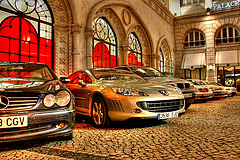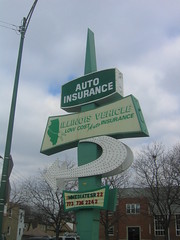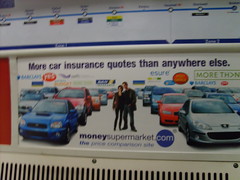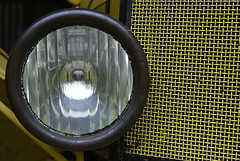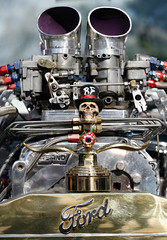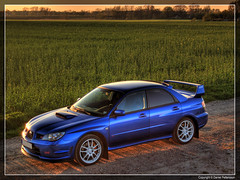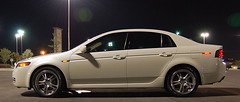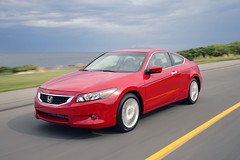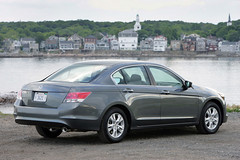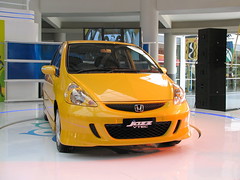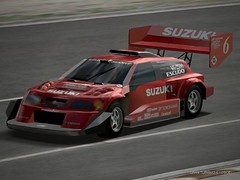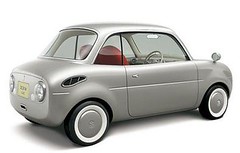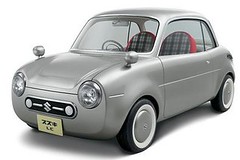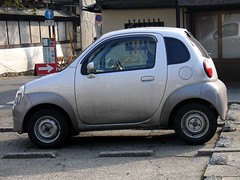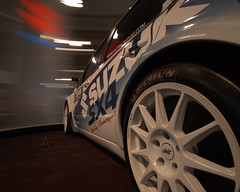This blog contains the information about something related to automotive such as car insurance, auto car insurance, auto insurance quotes, online auto insurance, car insurance rates, car reviews, honda, chevrolet, BMW, Accessories, Adui, Car Interior, toyota, Car Price, Chrysler, Classic cars, Dodge, Ferrari, Ford, GMC, Hurst ,Hyunday, jaguar, Jeep, Lamborghini. Mazda, Mercedes Benz Gallery, Modern car, Nissan, Porsche,Price quote, Renault, Sedan, Sport Cars,Suzuki,Tips, Mitsubishi
Monday, June 30, 2008
- Car Insurance : - the Most Stolen Cars
In the modern era, stealing cars also supports with modern tool. That is why It is necessary for the owners of the cars to be careful in parkin the cars. According to carinsurancerates.com, In America, every twenty seconds a car is stollen Nearly half of these are never recovered, having been scrapped for parts or smuggled to another country. Anti-theft devices can help deter criminals, but as the technology of car alarms progresses, so does the crafty nature of auto thieves. carinsurancerates.com presents 10 Most Stolen Cars. That is why joining auto insurance is necessary. To know 10 most stolen car, you can visit carinsurancerates.com
Sunday, June 29, 2008
- Saving Money on Auto Insurance Policy
The price of gas is increasing now. Therefore, people now are trying to look for the way how to save money properly, especially for their cars. This condition also influences the insurance rates. www.carinsurancerates.com presents how to Save Money on Your Next Auto Insurance Policy which includes :
- Increase Your Deductible
- Payment Methods
- Additional Safety Features
- Additional Safety Features
- Infrequent Driver
- Have Good Credit
- Housing and Garages
- Multi Policy Discount
- Drive Carefully
The further information can be seen in www.carinsurancerates.com
- Increase Your Deductible
- Payment Methods
- Additional Safety Features
- Additional Safety Features
- Infrequent Driver
- Have Good Credit
- Housing and Garages
- Multi Policy Discount
- Drive Carefully
The further information can be seen in www.carinsurancerates.com
Friday, June 27, 2008
- Cars which are easiest to Get Insured
It is happines to find that oaur car is easy to get insured. Therefore we must know the characteristics of cars which are easiest to get insured.
The first thing an insurance company looks at when offering us a quote is ourr driving history. Have a spotless one, and we’ll definitely get a better rate than a guy who has a glovebox full of tickets. The following are 10 Easiest Cars to Get Insured presentend by carinsurancerates.com
The first thing an insurance company looks at when offering us a quote is ourr driving history. Have a spotless one, and we’ll definitely get a better rate than a guy who has a glovebox full of tickets. The following are 10 Easiest Cars to Get Insured presentend by carinsurancerates.com
Thursday, June 26, 2008
- Auto Insurance Payment
Auto insurance is a phenomenon of modern automotive ere. One thing that we need to find out before joining auto insurance is the payment of Auto Insurance. We can choose some options such as pay in full or Monthly Installments. We must consider the advantages and disadvantages of each option before we decide which auto insurance payment option we choose.
- Auto Insurance Myth
In daily life myth always occurs. In the field of auto insurance myh also occur. Color ooften becomes the simbol of myth. In Yogyakarta for example (The province in Indonesia), people must not wear green color shirt when they visit Parang Tritis Beach because They will get accident. In Auto Insurance there is also myth that Red cars cost more to insure than the other color cars. The other myth on Auto Insurance is One speeding ticket will make a car insurance rates go up. All of these are only a myth. There are several factors which influence the rates of the cars on auto insurance. However It is up to you whether you believe the myth or not.
Photo Source: pjchmiel
Photo Source: pjchmiel
Sunday, June 22, 2008
- BMW Logo ABS Tire Valve Caps
Features
* Sold as set of four
* Made from solid brass in chrome finish
* Fits all standard air valves
* Inner "O" ring seal insecure a clean valve orifice and consistent tire pressure
* Knurled head for easy on and off installation
- BMW Locket Key Chain
You are looking at one BMW locket key chain. Brass split ring with BMW logo that opens to hold a photo. This is a official BMW product.
Features
* Brass split ring
* Opens to hold a photo
- BMW Genuine Hood Roundel Emblem for All Model and for Trunk of E32/e38 7-series From 86 - 01, E34 5-series From 88 - 95, E36 3-series From 90 - 99
Features
* It fits the Hood of All Models.
* It fits the Trunk of following models:
* E36 models ( 3-series ) from 1990 - 1999
* E34 models ( 5-series ) from 1988 - 1995
* E32 & E38 models ( 7-series ) from 1986 - 2001
* It fits the Hood of All Models.
* It fits the Trunk of following models:
* E36 models ( 3-series ) from 1990 - 1999
* E34 models ( 5-series ) from 1988 - 1995
* E32 & E38 models ( 7-series ) from 1986 - 2001
Wednesday, June 18, 2008
- Car Insurance: Car Insurance Companies
Knowing the car insurance company is important before joining the company. That is why someone must find out information about the good insurance company. The more insurance companies someone know the better. Someone can compare between one company and the others. By comparing the insurance companies, someone will have knowledge to choose the right company he wants to join. The following is the list of car insurance companies.
- Car Insurance: Car Insurance Guide
Car insurance is needed by a person who has a car. It is not easy, however, to choose the car insurance which is right with the car someone has. It is important for someone to assure that the car insurance company someone chooses is credible. It is necessary to know insurance policies, insurance rates, and insurance quotes.
To know more about the insurance guide, just read here.
To know more about the insurance guide, just read here.
- Car insurance quotes
Car insurance becomes the important need in modern life. information about the different kinds of car insurance policies and rates, plus ways to shop, compare and save on car insurance quotes can be read here.
Tuesday, June 17, 2008
- Car Insurance
Car insurance is one of various kinds of insurance.Car insurance is popular now. A person who has a car likes to join car insurance because by joining car insurance he/she can hedge against the risk of a contingent loss.
In wikipedia, It is stated that Commercially insurable risks typically share seven common characteristics as follows:
1. A large number of homogeneous exposure units. The vast majority of insurance policies are provided for individual members of very large classes. Automobile insurance, for example, covered about 175 million automobiles in the United States in 2004.[2] The existence of a large number of homogeneous exposure units allows insurers to benefit from the so-called “law of large numbers,” which in effect states that as the number of exposure units increases, the actual results are increasingly likely to become close to expected results. There are exceptions to this criterion. Lloyd's of London is famous for insuring the life or health of actors, actresses and sports figures. Satellite Launch insurance covers events that are infrequent. Large commercial property policies may insure exceptional properties for which there are no ‘homogeneous’ exposure units. Despite failing on this criterion, many exposures like these are generally considered to be insurable.
2. Definite Loss. The event that gives rise to the loss that is subject to insurance should, at least in principle, take place at a known time, in a known place, and from a known cause. The classic example is death of an insured on a life insurance policy. Fire, automobile accidents, and worker injuries may all easily meet this criterion. Other types of losses may only be definite in theory. Occupational disease, for instance, may involve prolonged exposure to injurious conditions where no specific time, place or cause is identifiable. Ideally, the time, place and cause of a loss should be clear enough that a reasonable person, with sufficient information, could objectively verify all three elements.
3. Accidental Loss. The event that constitutes the trigger of a claim should be fortuitous, or at least outside the control of the beneficiary of the insurance. The loss should be ‘pure,’ in the sense that it results from an event for which there is only the opportunity for cost. Events that contain speculative elements, such as ordinary business risks, are generally not considered insurable.
4. Large Loss. The size of the loss must be meaningful from the perspective of the insured. Insurance premiums need to cover both the expected cost of losses, plus the cost of issuing and administering the policy, adjusting losses, and supplying the capital needed to reasonably assure that the insurer will be able to pay claims. For small losses these latter costs may be several times the size of the expected cost of losses. There is little point in paying such costs unless the protection offered has real value to a buyer.
5. Affordable Premium. If the likelihood of an insured event is so high, or the cost of the event so large, that the resulting premium is large relative to the amount of protection offered, it is not likely that anyone will buy insurance, even if on offer. Further, as the accounting profession formally recognizes in financial accounting standards, the premium cannot be so large that there is not a reasonable chance of a significant loss to the insurer. If there is no such chance of loss, the transaction may have the form of insurance, but not the substance. (See the U.S. Financial Accounting Standards Board standard number.
6. Calculable Loss. There are two elements that must be at least estimable, if not formally calculable: the probability of loss, and the attendant cost. Probability of loss is generally an empirical exercise, while cost has more to do with the ability of a reasonable person in possession of a copy of the insurance policy and a proof of loss associated with a claim presented under that policy to make a reasonably definite and objective evaluation of the amount of the loss recoverable as a result of the claim.
7. Limited risk of catastrophically large losses. The essential risk is often aggregation. If the same event can cause losses to numerous policyholders of the same insurer, the ability of that insurer to issue policies becomes constrained, not by factors surrounding the individual characteristics of a given policyholder, but by the factors surrounding the sum of all policyholders so exposed. Typically, insurers prefer to limit their exposure to a loss from a single event to some small portion of their capital base, on the order of 5 percent. Where the loss can be aggregated, or an individual policy could produce exceptionally large claims, the capital constraint will restrict an insurers appetite for additional policyholders. The classic example is earthquake insurance, where the ability of an underwriter to issue a new policy depends on the number and size of the policies that it has already underwritten. Wind insurance in hurricane zones, particularly along coast lines, is another example of this phenomenon. In extreme cases, the aggregation can affect the entire industry, since the combined capital of insurers and reinsurers can be small compared to the needs of potential policyholders in areas exposed to aggregation risk. In commercial fire insurance it is possible to find single properties whose total exposed value is well in excess of any individual insurer’s capital constraint. Such properties are generally shared among several insurers, or are insured by a single insurer who syndicates the risk into the reinsurance market.
In wikipedia, It is stated that Commercially insurable risks typically share seven common characteristics as follows:
1. A large number of homogeneous exposure units. The vast majority of insurance policies are provided for individual members of very large classes. Automobile insurance, for example, covered about 175 million automobiles in the United States in 2004.[2] The existence of a large number of homogeneous exposure units allows insurers to benefit from the so-called “law of large numbers,” which in effect states that as the number of exposure units increases, the actual results are increasingly likely to become close to expected results. There are exceptions to this criterion. Lloyd's of London is famous for insuring the life or health of actors, actresses and sports figures. Satellite Launch insurance covers events that are infrequent. Large commercial property policies may insure exceptional properties for which there are no ‘homogeneous’ exposure units. Despite failing on this criterion, many exposures like these are generally considered to be insurable.
2. Definite Loss. The event that gives rise to the loss that is subject to insurance should, at least in principle, take place at a known time, in a known place, and from a known cause. The classic example is death of an insured on a life insurance policy. Fire, automobile accidents, and worker injuries may all easily meet this criterion. Other types of losses may only be definite in theory. Occupational disease, for instance, may involve prolonged exposure to injurious conditions where no specific time, place or cause is identifiable. Ideally, the time, place and cause of a loss should be clear enough that a reasonable person, with sufficient information, could objectively verify all three elements.
3. Accidental Loss. The event that constitutes the trigger of a claim should be fortuitous, or at least outside the control of the beneficiary of the insurance. The loss should be ‘pure,’ in the sense that it results from an event for which there is only the opportunity for cost. Events that contain speculative elements, such as ordinary business risks, are generally not considered insurable.
4. Large Loss. The size of the loss must be meaningful from the perspective of the insured. Insurance premiums need to cover both the expected cost of losses, plus the cost of issuing and administering the policy, adjusting losses, and supplying the capital needed to reasonably assure that the insurer will be able to pay claims. For small losses these latter costs may be several times the size of the expected cost of losses. There is little point in paying such costs unless the protection offered has real value to a buyer.
5. Affordable Premium. If the likelihood of an insured event is so high, or the cost of the event so large, that the resulting premium is large relative to the amount of protection offered, it is not likely that anyone will buy insurance, even if on offer. Further, as the accounting profession formally recognizes in financial accounting standards, the premium cannot be so large that there is not a reasonable chance of a significant loss to the insurer. If there is no such chance of loss, the transaction may have the form of insurance, but not the substance. (See the U.S. Financial Accounting Standards Board standard number.
6. Calculable Loss. There are two elements that must be at least estimable, if not formally calculable: the probability of loss, and the attendant cost. Probability of loss is generally an empirical exercise, while cost has more to do with the ability of a reasonable person in possession of a copy of the insurance policy and a proof of loss associated with a claim presented under that policy to make a reasonably definite and objective evaluation of the amount of the loss recoverable as a result of the claim.
7. Limited risk of catastrophically large losses. The essential risk is often aggregation. If the same event can cause losses to numerous policyholders of the same insurer, the ability of that insurer to issue policies becomes constrained, not by factors surrounding the individual characteristics of a given policyholder, but by the factors surrounding the sum of all policyholders so exposed. Typically, insurers prefer to limit their exposure to a loss from a single event to some small portion of their capital base, on the order of 5 percent. Where the loss can be aggregated, or an individual policy could produce exceptionally large claims, the capital constraint will restrict an insurers appetite for additional policyholders. The classic example is earthquake insurance, where the ability of an underwriter to issue a new policy depends on the number and size of the policies that it has already underwritten. Wind insurance in hurricane zones, particularly along coast lines, is another example of this phenomenon. In extreme cases, the aggregation can affect the entire industry, since the combined capital of insurers and reinsurers can be small compared to the needs of potential policyholders in areas exposed to aggregation risk. In commercial fire insurance it is possible to find single properties whose total exposed value is well in excess of any individual insurer’s capital constraint. Such properties are generally shared among several insurers, or are insured by a single insurer who syndicates the risk into the reinsurance market.
Sunday, June 15, 2008
Antique Car Headlight
Antique Car Headlight, taken with a Canon EOS-1D camera at 1/132 s, F 7.10, in Rhinebeck, NY USA
Antique car, BMW Museum, Munich
An antique car sits on display at the temporary BMW Museum in Munich, Bavaria, Germany
Ford Antique Car
We had lunch yesterday at a Roast Beef place and didnt realize that it was just the beginning of an antique car show. The cars kept coming into the parking lot. It was pretty cool.
Luckily, I had my camera ..but only a 100mm macro lens...
I thought this Fords front end and engine looked the best.
This shot is actually a combination of two shots.
One for the front part of the engine and grill..the other for the back part of the engine..since the macro lens has a very narrow depth of field up close. The detail is better appreciated in the large version.
Source: garreyf
Luckily, I had my camera ..but only a 100mm macro lens...
I thought this Fords front end and engine looked the best.
This shot is actually a combination of two shots.
One for the front part of the engine and grill..the other for the back part of the engine..since the macro lens has a very narrow depth of field up close. The detail is better appreciated in the large version.
Source: garreyf
Friday, June 13, 2008
Subaru Impreza WRX STI (2008) - 2
Subaru uses the Impreza chassis for the mechanical underpinnings of the Forester, a small crossover SUV designed to compete in the segment comprising the Honda CR-V and Ford Escape.
As a result of GM's investment in Fuji Heavy Industries and ownership of Saab, the hatchback Impreza Wagon was the basis of the Saab 9-2X released in 2005 (given the tongue-in-cheek moniker "Saabaru")[8] which was discontinued in 2006 due to the dissolution of the Subaru-GM partnership.
Subaru sold a cosmetically altered (in the neoclassic style) sedan and wagon in Asia called the Subaru Casa Blanca.
More information: http://en.wikipedia.org/wiki/Subaru_Impreza
As a result of GM's investment in Fuji Heavy Industries and ownership of Saab, the hatchback Impreza Wagon was the basis of the Saab 9-2X released in 2005 (given the tongue-in-cheek moniker "Saabaru")[8] which was discontinued in 2006 due to the dissolution of the Subaru-GM partnership.
Subaru sold a cosmetically altered (in the neoclassic style) sedan and wagon in Asia called the Subaru Casa Blanca.
More information: http://en.wikipedia.org/wiki/Subaru_Impreza
Subaru Impreza STi
For the high-performance versions of the Impreza, see Subaru Impreza WRX and Subaru Impreza WRX STi
For the off-road, outdoor activity version of the Impreza Sport Wagon, see Subaru Outback Sport
For the Saab-branded derivative of the Impreza, see Saab 9-2XSubaru Impreza
Manufacturer Subaru
Parent company Fuji Heavy Industries
Production 1993–present
Assembly Ōta, Gunma, Japan
Predecessor Subaru Leone/Loyale
Class Compact
The Subaru Impreza is a compact car that was first introduced by Subaru in 1993.
"Impreza" is a coined word, deriving from an originally Italian word, impresa, meaning a feat or achievement. In Polish, "Impreza" means "party", "event" or "show".
The Impreza was introduced after the popular Leone/Loyale was cancelled with the aging EA series engine. The Impreza was introduced with the popular EJ series engine found in the larger Subaru Legacy.
Compared to vehicles in a similar size class such as Toyota Corolla, Honda Civic, Nissan Sentra, Mitsubishi Lancer and Mazda 323, only the Impreza has always offered AWD, and as of 1996 Subaru made this feature standard equipment in some markets.
Subaru chose to continue their longstanding use of the boxer engine in the Impreza. According to Subaru, their configuration of the engine inline with the transmission minimizes body roll due to the lower center of gravity compared with the offset engines in most other vehicles. The Subaru layout is also light-weight and lends itself easily to support all-wheel-drive. The boxer design provides perfect vibration mitigation due to the fact that the movement of each piston is exactly countered by the corresponding piston in the opposing cylinder bank, eliminating the need for a counter-rotating weighted crankshaft (harmonic balancer). Torque steer is also reduced with this type of powertrain layout since the front drive shafts are of equal length.
For the off-road, outdoor activity version of the Impreza Sport Wagon, see Subaru Outback Sport
For the Saab-branded derivative of the Impreza, see Saab 9-2XSubaru Impreza
Manufacturer Subaru
Parent company Fuji Heavy Industries
Production 1993–present
Assembly Ōta, Gunma, Japan
Predecessor Subaru Leone/Loyale
Class Compact
The Subaru Impreza is a compact car that was first introduced by Subaru in 1993.
"Impreza" is a coined word, deriving from an originally Italian word, impresa, meaning a feat or achievement. In Polish, "Impreza" means "party", "event" or "show".
The Impreza was introduced after the popular Leone/Loyale was cancelled with the aging EA series engine. The Impreza was introduced with the popular EJ series engine found in the larger Subaru Legacy.
Compared to vehicles in a similar size class such as Toyota Corolla, Honda Civic, Nissan Sentra, Mitsubishi Lancer and Mazda 323, only the Impreza has always offered AWD, and as of 1996 Subaru made this feature standard equipment in some markets.
Subaru chose to continue their longstanding use of the boxer engine in the Impreza. According to Subaru, their configuration of the engine inline with the transmission minimizes body roll due to the lower center of gravity compared with the offset engines in most other vehicles. The Subaru layout is also light-weight and lends itself easily to support all-wheel-drive. The boxer design provides perfect vibration mitigation due to the fact that the movement of each piston is exactly countered by the corresponding piston in the opposing cylinder bank, eliminating the need for a counter-rotating weighted crankshaft (harmonic balancer). Torque steer is also reduced with this type of powertrain layout since the front drive shafts are of equal length.
Suzuki SX4 center console
Suzuki SX4 center console
Suzuki SX4 center console
Suzuki SX4 center console
Suzuki SX4 center console
Suzuki SX4 center console
Suzuki SX4 center console
Suzuki SX4 center console
suzuki_sx4_2009
GPS pioneer Garmin just announced that the comoany will provide an integrated GPS navigation system for the all new 2009 Suzuki SX4 as standard equipment. The program marks the first time in the U.S. that a lower priced car will include a navigation system as a standard feature.
According to the partnering companies, the SX4’s GPS will be customized and be built on Garmin’s popular nuvi 700 series of premium navigators. The so-called “Suzuki T.R.I.P. (Travel, Real-time traffic, Information and Play) system has maps of North America pre-loaded, and has a bright 4.3-inch touchscreen display with nearly six million points of interest. These “POI” inckude places like restaurants, hotels, ATM machines, and more.
The 2009 Suzuki SX4 is scheduled to be in dealer showrooms this coming summer and will retail for around $16,000.
Source: http://www.carfever.net/?p=238
According to the partnering companies, the SX4’s GPS will be customized and be built on Garmin’s popular nuvi 700 series of premium navigators. The so-called “Suzuki T.R.I.P. (Travel, Real-time traffic, Information and Play) system has maps of North America pre-loaded, and has a bright 4.3-inch touchscreen display with nearly six million points of interest. These “POI” inckude places like restaurants, hotels, ATM machines, and more.
The 2009 Suzuki SX4 is scheduled to be in dealer showrooms this coming summer and will retail for around $16,000.
Source: http://www.carfever.net/?p=238
2008 Suzuki SX4 Sport
Conventional wisdom says that if you want decent performance and a fun-to-drive character in a compact sedan, it'll cost you, and you may end up in a subcompact rather than a compact if you can't meet that cost.
Suzuki ignores conventional wisdom with its SX4 Sport, the sedan derivative of its SX4 tall-hatchback/small crossover. In the current European/Asian styling idiom, it's tall and boasts a large passenger cabin, for far more interior room than its modest exterior size would lead your to believe. And the chassis tuning is very European, with a moderately firm suspension tuning that offers a great compromise between nimble handling and comfort on poorly-maintained roads. With a base MSRP ranging from $14,270 to $15,770 fully-equipped (plus add $625 for destination processing, and another $1,100 to replace the standard five-speed manual with a four-speed automatic if you must) the SX4 Sport undercuts its competitors in price, with no loss of space, comfort, amenities, build quality, or performance.
A 2.0-liter, 143-horsepower engine puts it at the top of the class in the power department, while still returning fine fuel economy - 27 mpg for my week, according to the trip computer. Trip computer? As in more expensive cars? Yes. While my test car was the top-of-the-line version with the comprehensive "Touring Package 2" option pack, even the base specification gets four-wheel antilock disc brakes, a full complement of airbags, including front seat side and full-length curtain, air conditioning, a four-speaker AM/FM/CD/MP3-WMA XM-ready audio system, and remote keyless entry with a security system. Not bad at all, especially for under $15k. Headroom is no problem, even in the back seat. And it's a real Japanese Suzuki, not a rebadged Korean Daewoo.
I thoroughly enjoyed my time with the SX4 Sport. Here in the United States, "performance Suzuki" brings to mind something with two wheels, while "four-wheeled Suzuki" inspires thoughts primarily of small SUVs like the Grand Vitara. Or perhaps subcompacts like the late Swift... which is "late" only on this side of the Atlantic, as the current version has a notable performance heritage in Europe. And for that market it, in slightly larger size, spawned the SX4. For the North American market, the SX4 gets more power and more features, cause for complaint only from the established players in the compact sedan class. The Suzuki SX4 may not be the first car to mind when thinking of a small sedan, but it's definitely worth a look.
APPEARANCE: In the lands where fuel is expensive and road space is at a premium - everywhere but North America - the dominant trend for small, inexpensive sedans and hatchbacks has been to grow in height for maximum space utilization. Such is the genesis of both varieties of SX4. "Longer, lower, wider" is nowhere to be seen, but the Sport is a good-looking vehicle regardless. Its lines are clean and uncluttered, with a short hood and trunk, oversized L-shaped headlights, and a rounded-trapezoid black-mesh grille featuring the Suzuki "S" among its distinguishing features. Most unusual are the side windows, which drop toward the front in the manner of some Italian exotics - or the old Suzuki Sidekick - for improved driver visibility. Also aiding visibility to the all-important front quarters are the small triangular windows between the leading edge of each front door and the A-pillars. Sporty "aero kit" extensions of the front and rear fascias and side sills visually lower the car, and oversized taillights add to style, safety, and visibility.
COMFORT: Tall people on a budget, rejoice! You need headroom? You've got it here. And good seats and a pleasant interior design. Yes, materials are unsurprisingly quality synthetics, with leather only for the steering wheel rim with the Convenience Package and above. But that wheel is tilt-adjustable, and in the upper trim levels includes cruise and auxiliary audio controls. Instrumentation is complete, and easily visible, with no gimmicks. Air conditioning and at least an AM/FM/CD/MP3-WMA audio system come standard in all trim levels, with upper ones having a 9-speaker audio system and automatic climate control. The front seats are moderately bolstered for support in enthusiastic driving (and looks). The rear seat cushion is a little higher than the fronts, for "theater seating", but there is still plenty of headroom back there. And legroom as well. Unusually, the rear seat does not fold. Presumably Suzuki figured Sport drivers would prefer the extra structural rigidity of a fixed bulkhead, with those potential customers who have cargo in mind directed to the SX4 Crossover. The Sport's trunk is large enough for most any normal car need.
SAFETY: The SX4 Sport has all of the safety features expected from a car costing twice its price. Crumple zones protect the front and rear, with reinforcement around the passenger cabin. Six airbags - dual front, front seat-mounted side, and full-length side curtain - further protect passengers. Four-wheel antilock disc brakes with electronic brake-force distribution and a tire-pressure monitoring system are also found in all examples. SX4s with the Touring Package 2 option group have the ESP electronic stability control system and traction control.
RIDE AND HANDLING: Compared to the SX4 Crossover, the Sport's MacPherson strut front, torsion beam axle rear suspension is a little firmer, lowered 10mm (0.4 inch), and features stabilizer bars and KYB sport shocks. Tires are speed-rated (and reasonably sticky) Dunlop SP Sport 7000s, size 205/50 VR17 on alloy rims, and brakes are four-wheel disc. The ride quality is still quite comfortable, even on "pavement" that hasn't seen maintenance since the muscle-car era, and cornering performance is much better than usual for a small, low-budget sedan. That benefits active safety as well as driving pleasure.
PERFORMANCE: It won't impress its two-wheeled cousins with names like GSX-R and Hayabusa, but the SX4 Sport is the most playful and energetic car in its price class. A two-liter twin-cam, 16-valve alloy four-cylinder engine sees to that, with 143 horsepower (at 5800 rpm) and 136 lb-ft of torque (at 3500 rpm) on tap. There is no fancy (and expensive) variable cam phasing, but it pulls fine from a standstill in lower gears, wakes up above 3000 rpm, and has a nice, and useable, top-end surge that comes online around 5000. Very good linkage for the standard five-speed manual transmission encourages use of the gears, as does a better than average pedal arrangement. Don't tell your insurance agent, but the "Sport" moniker is deserved. And it has no penalty at the pump. EPA estimates are 22 city and 30 highway. Split about 50/50 and with as much enthusiasm as I could manage on on- and off-ramps and the odd uncrowded road, I still got a 27mpg average.
CONCLUSIONS: The Suzuki SX4 Sport is a sporty and attractive newcomer in the low-budget compact sedan class.
SPECIFICATIONS 2008 Suzuki SX4 Sport
Base Price $ 15,770
Price As Tested $ 16,395
Engine Type dual overhead cam 16-valve aluminum
alloy inline 4-cylinder
Engine Size 2.0 liters / x cu. in.
Horsepower 143 @ 5800 rpm
Torque (lb-ft) 136 @ 3500 rpm
Transmission 5-speed manual
Wheelbase / Length 98.4 in. / 177.6 in.
Curb Weight 2668 lbs.
Pounds Per Horsepower 18.7
Fuel Capacity 13.2 gal.
Fuel Requirement 87-octane unleaded regular gasoline
Tires P205/50 VR17 Dunlop SP Sport 7000
Brakes, front/rear vented disc / solid disc,
ABS and EBD standard
Suspension, front/rear independent MacPherson strut /
semi-independent torsion beam axle
Drivetrain transverse front engine,
front-wheel drive
PERFORMANCE
EPA Fuel Economy - miles per gallon
city / highway / observed 22 / 30 / 27
0 to 60 mph 9.2 sec
OPTIONS AND CHARGES
source: http://www.theautochannel.com/news/2008/02/14/077772.html
(base price includes
Convenience Package: leather-wrapped steering
wheel with cruise control and auxiliary audio controls,
automatic climate control
Touring Package 1 adds: upgraded audio with CD changer,
front foglamps, rear spoiler
Touring Package 2 adds: SmartPass(tm) remote fob with
remote start, ESP, TCS)
Destination charge $ 625
Source: http://www.theautochannel.com/news/2008/02/14/077772.html
Suzuki ignores conventional wisdom with its SX4 Sport, the sedan derivative of its SX4 tall-hatchback/small crossover. In the current European/Asian styling idiom, it's tall and boasts a large passenger cabin, for far more interior room than its modest exterior size would lead your to believe. And the chassis tuning is very European, with a moderately firm suspension tuning that offers a great compromise between nimble handling and comfort on poorly-maintained roads. With a base MSRP ranging from $14,270 to $15,770 fully-equipped (plus add $625 for destination processing, and another $1,100 to replace the standard five-speed manual with a four-speed automatic if you must) the SX4 Sport undercuts its competitors in price, with no loss of space, comfort, amenities, build quality, or performance.
A 2.0-liter, 143-horsepower engine puts it at the top of the class in the power department, while still returning fine fuel economy - 27 mpg for my week, according to the trip computer. Trip computer? As in more expensive cars? Yes. While my test car was the top-of-the-line version with the comprehensive "Touring Package 2" option pack, even the base specification gets four-wheel antilock disc brakes, a full complement of airbags, including front seat side and full-length curtain, air conditioning, a four-speaker AM/FM/CD/MP3-WMA XM-ready audio system, and remote keyless entry with a security system. Not bad at all, especially for under $15k. Headroom is no problem, even in the back seat. And it's a real Japanese Suzuki, not a rebadged Korean Daewoo.
I thoroughly enjoyed my time with the SX4 Sport. Here in the United States, "performance Suzuki" brings to mind something with two wheels, while "four-wheeled Suzuki" inspires thoughts primarily of small SUVs like the Grand Vitara. Or perhaps subcompacts like the late Swift... which is "late" only on this side of the Atlantic, as the current version has a notable performance heritage in Europe. And for that market it, in slightly larger size, spawned the SX4. For the North American market, the SX4 gets more power and more features, cause for complaint only from the established players in the compact sedan class. The Suzuki SX4 may not be the first car to mind when thinking of a small sedan, but it's definitely worth a look.
APPEARANCE: In the lands where fuel is expensive and road space is at a premium - everywhere but North America - the dominant trend for small, inexpensive sedans and hatchbacks has been to grow in height for maximum space utilization. Such is the genesis of both varieties of SX4. "Longer, lower, wider" is nowhere to be seen, but the Sport is a good-looking vehicle regardless. Its lines are clean and uncluttered, with a short hood and trunk, oversized L-shaped headlights, and a rounded-trapezoid black-mesh grille featuring the Suzuki "S" among its distinguishing features. Most unusual are the side windows, which drop toward the front in the manner of some Italian exotics - or the old Suzuki Sidekick - for improved driver visibility. Also aiding visibility to the all-important front quarters are the small triangular windows between the leading edge of each front door and the A-pillars. Sporty "aero kit" extensions of the front and rear fascias and side sills visually lower the car, and oversized taillights add to style, safety, and visibility.
COMFORT: Tall people on a budget, rejoice! You need headroom? You've got it here. And good seats and a pleasant interior design. Yes, materials are unsurprisingly quality synthetics, with leather only for the steering wheel rim with the Convenience Package and above. But that wheel is tilt-adjustable, and in the upper trim levels includes cruise and auxiliary audio controls. Instrumentation is complete, and easily visible, with no gimmicks. Air conditioning and at least an AM/FM/CD/MP3-WMA audio system come standard in all trim levels, with upper ones having a 9-speaker audio system and automatic climate control. The front seats are moderately bolstered for support in enthusiastic driving (and looks). The rear seat cushion is a little higher than the fronts, for "theater seating", but there is still plenty of headroom back there. And legroom as well. Unusually, the rear seat does not fold. Presumably Suzuki figured Sport drivers would prefer the extra structural rigidity of a fixed bulkhead, with those potential customers who have cargo in mind directed to the SX4 Crossover. The Sport's trunk is large enough for most any normal car need.
SAFETY: The SX4 Sport has all of the safety features expected from a car costing twice its price. Crumple zones protect the front and rear, with reinforcement around the passenger cabin. Six airbags - dual front, front seat-mounted side, and full-length side curtain - further protect passengers. Four-wheel antilock disc brakes with electronic brake-force distribution and a tire-pressure monitoring system are also found in all examples. SX4s with the Touring Package 2 option group have the ESP electronic stability control system and traction control.
RIDE AND HANDLING: Compared to the SX4 Crossover, the Sport's MacPherson strut front, torsion beam axle rear suspension is a little firmer, lowered 10mm (0.4 inch), and features stabilizer bars and KYB sport shocks. Tires are speed-rated (and reasonably sticky) Dunlop SP Sport 7000s, size 205/50 VR17 on alloy rims, and brakes are four-wheel disc. The ride quality is still quite comfortable, even on "pavement" that hasn't seen maintenance since the muscle-car era, and cornering performance is much better than usual for a small, low-budget sedan. That benefits active safety as well as driving pleasure.
PERFORMANCE: It won't impress its two-wheeled cousins with names like GSX-R and Hayabusa, but the SX4 Sport is the most playful and energetic car in its price class. A two-liter twin-cam, 16-valve alloy four-cylinder engine sees to that, with 143 horsepower (at 5800 rpm) and 136 lb-ft of torque (at 3500 rpm) on tap. There is no fancy (and expensive) variable cam phasing, but it pulls fine from a standstill in lower gears, wakes up above 3000 rpm, and has a nice, and useable, top-end surge that comes online around 5000. Very good linkage for the standard five-speed manual transmission encourages use of the gears, as does a better than average pedal arrangement. Don't tell your insurance agent, but the "Sport" moniker is deserved. And it has no penalty at the pump. EPA estimates are 22 city and 30 highway. Split about 50/50 and with as much enthusiasm as I could manage on on- and off-ramps and the odd uncrowded road, I still got a 27mpg average.
CONCLUSIONS: The Suzuki SX4 Sport is a sporty and attractive newcomer in the low-budget compact sedan class.
SPECIFICATIONS 2008 Suzuki SX4 Sport
Base Price $ 15,770
Price As Tested $ 16,395
Engine Type dual overhead cam 16-valve aluminum
alloy inline 4-cylinder
Engine Size 2.0 liters / x cu. in.
Horsepower 143 @ 5800 rpm
Torque (lb-ft) 136 @ 3500 rpm
Transmission 5-speed manual
Wheelbase / Length 98.4 in. / 177.6 in.
Curb Weight 2668 lbs.
Pounds Per Horsepower 18.7
Fuel Capacity 13.2 gal.
Fuel Requirement 87-octane unleaded regular gasoline
Tires P205/50 VR17 Dunlop SP Sport 7000
Brakes, front/rear vented disc / solid disc,
ABS and EBD standard
Suspension, front/rear independent MacPherson strut /
semi-independent torsion beam axle
Drivetrain transverse front engine,
front-wheel drive
PERFORMANCE
EPA Fuel Economy - miles per gallon
city / highway / observed 22 / 30 / 27
0 to 60 mph 9.2 sec
OPTIONS AND CHARGES
source: http://www.theautochannel.com/news/2008/02/14/077772.html
(base price includes
Convenience Package: leather-wrapped steering
wheel with cruise control and auxiliary audio controls,
automatic climate control
Touring Package 1 adds: upgraded audio with CD changer,
front foglamps, rear spoiler
Touring Package 2 adds: SmartPass(tm) remote fob with
remote start, ESP, TCS)
Destination charge $ 625
Source: http://www.theautochannel.com/news/2008/02/14/077772.html
Tuesday, June 10, 2008
2005 Acura TL - White Diamond Pearl 2
2005 Acura TL - White Diamond Pearl
18x8 Motosport Design EXE II wheels
245/40/18 Kuhmo Ecsta ASX tires
Black Formula One Pinnacle Tint 35%
The 2005 TL received a passenger airbag cutoff switch and extra stitching on the front seats. Manual transmission models featured Brembo 4 Piston brake calipers for the front wheels. There were several minor changes made (such as changes in seat belt anchor mounts) which are not published.
Mor information: wikipedia
18x8 Motosport Design EXE II wheels
245/40/18 Kuhmo Ecsta ASX tires
Black Formula One Pinnacle Tint 35%
The 2005 TL received a passenger airbag cutoff switch and extra stitching on the front seats. Manual transmission models featured Brembo 4 Piston brake calipers for the front wheels. There were several minor changes made (such as changes in seat belt anchor mounts) which are not published.
Mor information: wikipedia
2008 Honda Accord Coupe LX Belize Blue
The picture and the review of this car are taken from bobbypd.blogspot.com. This is a nice car I think. The complete review of this car by bobbypd.blogspot.com is as follws:
In the time I've had the car, I've filled up 5 times, averaging 21 MPG as my actual real MPG, with about 75% city driving. I use the recommended 87 octane regular unleaded, usually from Sunoco and Exxon. (For comparison, the average MPG of my old Civic was 26 MPG). My lowest MPG has been 17.8 (the first fill-up, mostly city miles) and my highest 24.3 (with 100% highway driving that particular fill-up), giving me a somewhat disappointing MPG. This is definitely not the 21/31 MPG that Honda has advertised - I understand that no car gets its advertised mileage, but still...I wasn't expecting my mileage to be right at their lowest estimate. The 2008 Honda Accord gas tank has a capacity of 18.5 gallons.
Driving
I feel confident passing cars at highway speeds, and the 4-cylinder, 190-horsepower engine is more than enough for everyday driving. Normal highway speeds keep the engine in the low-2000 RPM range. I sometimes feel like I should have gotten the v6, BUT really, with gas at around $3.80, I'm glad I didn't. And really, the performance of the I4 engine is more than ample for city driving or highway cruising.
The coupe is hard to see around, however. I cannot see down the hood of my car, nor can I see my trunk that well. And really, there's a lot of junk in the trunk, so I'm always concerned about hitting something when backing up. Seeing around the sides of the car is also a challenge, since the curtain airbags take up a lot of space along the sides, reducing the rear side windows to tiny triangles – just barely of any use, and because the sides are quite high.
I'm a tall person and this car fits me perfectly (this was an issue with my Civic). A friend who drives a large SUV said that he somehow feels that my car is more spacious feeling than his - at least in the front seats. The back seats are ok, but headroom is significantly reduced due to the dramatically raked roof, and the legroom is very minimal. I’d suggest only children and/or shorter people should sit back there for long rides. Specs from Honda, Two Door, 2008 Honda Accord Coupe LX:
Interior Measurements
Headroom (in., front/rear): 39.1 / 35.9
Legroom (in., front/rear): 42.2 / 33.1
Shoulder Room (in., front/rear): 58.4 / 54.5
Hiproom (in., front/rear): 56.4 / 46.3
Exterior Measurements
Wheelbase (in.): 107.9
Length (in.): 190.9
Height (in.): 56.4
Width (in.): 72.8
Track (in., front/rear): 62.2 / 62.2
Curb Weight (lbs., MT/AT): 3221 / 3283
2008 Honda Accord Coupe LX Belize Blue
Originally uploaded by bobbypd
This is a review of the 2008 Honda Accord LX-S Coupe, 4-Cylinder, Automatic Transmission (Eighth Generation). I bought this car just over a month ago and have put about 1000 miles on it to date. For comparison purposes: I am 6'1" and about 200 lbs.Originally uploaded by bobbypd
In the time I've had the car, I've filled up 5 times, averaging 21 MPG as my actual real MPG, with about 75% city driving. I use the recommended 87 octane regular unleaded, usually from Sunoco and Exxon. (For comparison, the average MPG of my old Civic was 26 MPG). My lowest MPG has been 17.8 (the first fill-up, mostly city miles) and my highest 24.3 (with 100% highway driving that particular fill-up), giving me a somewhat disappointing MPG. This is definitely not the 21/31 MPG that Honda has advertised - I understand that no car gets its advertised mileage, but still...I wasn't expecting my mileage to be right at their lowest estimate. The 2008 Honda Accord gas tank has a capacity of 18.5 gallons.
Driving
I feel confident passing cars at highway speeds, and the 4-cylinder, 190-horsepower engine is more than enough for everyday driving. Normal highway speeds keep the engine in the low-2000 RPM range. I sometimes feel like I should have gotten the v6, BUT really, with gas at around $3.80, I'm glad I didn't. And really, the performance of the I4 engine is more than ample for city driving or highway cruising.
The coupe is hard to see around, however. I cannot see down the hood of my car, nor can I see my trunk that well. And really, there's a lot of junk in the trunk, so I'm always concerned about hitting something when backing up. Seeing around the sides of the car is also a challenge, since the curtain airbags take up a lot of space along the sides, reducing the rear side windows to tiny triangles – just barely of any use, and because the sides are quite high.
I'm a tall person and this car fits me perfectly (this was an issue with my Civic). A friend who drives a large SUV said that he somehow feels that my car is more spacious feeling than his - at least in the front seats. The back seats are ok, but headroom is significantly reduced due to the dramatically raked roof, and the legroom is very minimal. I’d suggest only children and/or shorter people should sit back there for long rides. Specs from Honda, Two Door, 2008 Honda Accord Coupe LX:
Interior Measurements
Headroom (in., front/rear): 39.1 / 35.9
Legroom (in., front/rear): 42.2 / 33.1
Shoulder Room (in., front/rear): 58.4 / 54.5
Hiproom (in., front/rear): 56.4 / 46.3
Exterior Measurements
Wheelbase (in.): 107.9
Length (in.): 190.9
Height (in.): 56.4
Width (in.): 72.8
Track (in., front/rear): 62.2 / 62.2
Curb Weight (lbs., MT/AT): 3221 / 3283
2008 Honda Accord
Taken at the launch of the 2008 Honda Accord at the Sofitel Harbor Garden
March 11, 2008
March 11, 2008
Honda Accord Wagon
Nick's Honda Accord wagon (with airbag suspension) on the standard wheels.
Not some dodgy Photoshop modification attempt either, that's how low it actually is.
30D + 17-55mm F2.8IS + 4 Flashes all on full power.
1x Vivitar 285HV to my right, facing front of car
1x Vivitar 285HV to my left, facing front wheel
1x Vivitar 285HV to the rear of car facing rear wheel
1x 580EX II manually triggered during long exposure facing the sign.
Not some dodgy Photoshop modification attempt either, that's how low it actually is.
30D + 17-55mm F2.8IS + 4 Flashes all on full power.
1x Vivitar 285HV to my right, facing front of car
1x Vivitar 285HV to my left, facing front wheel
1x Vivitar 285HV to the rear of car facing rear wheel
1x 580EX II manually triggered during long exposure facing the sign.
Monday, June 9, 2008
New Honda Jazz
Tomica Honda Jazz. The wheels were the only things I have changed as for now. The interior is ready to be painted and I'm still sketching the design of the exterior with graphics.
Honda Jazz Project (Pic 1)
Tomica Honda Jazz. The wheels were the only things I have changed as for now. The interior is ready to be painted and I'm still sketching the design of the exterior with graphics.
Sunday, June 8, 2008
Suzuki Swift Cup - Test day 28th february 2008, Circuit Park Zandvoort

Suzuki Swift Cup - Test day 28th february 2008, Circuit Park Zandvoort
Originally uploaded by Kees Bunk
Subscribe to:
Comments (Atom)
Popular Posts
-
Front Side View of 2007 BMW 335i Coupe by Hamann This is another variant, one of the various types of BMW cars. BMW always produces luxuriou...
-
I love Blue of Honda Jazz. It is an elegant car. This is the interior of Honda Jazz What a beautiful car Honda Jazz is
-
2010 Mazda RX-8 Facelift : Front Angle, Front Side Top, Side Door Open, Interior, and Dashboard Picture 2010 Mazda RX-8 Facelift - Front Ang...
-
Here is Audi Q7 AVUS 2009 seen from Rear Side View. What a nice car it is to drive. Here is Audi Q7 AVUS 2009 seen from Rear View. It is a...
